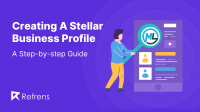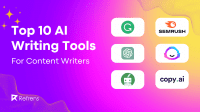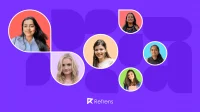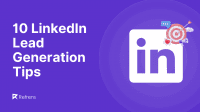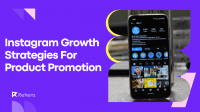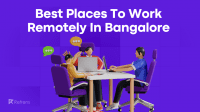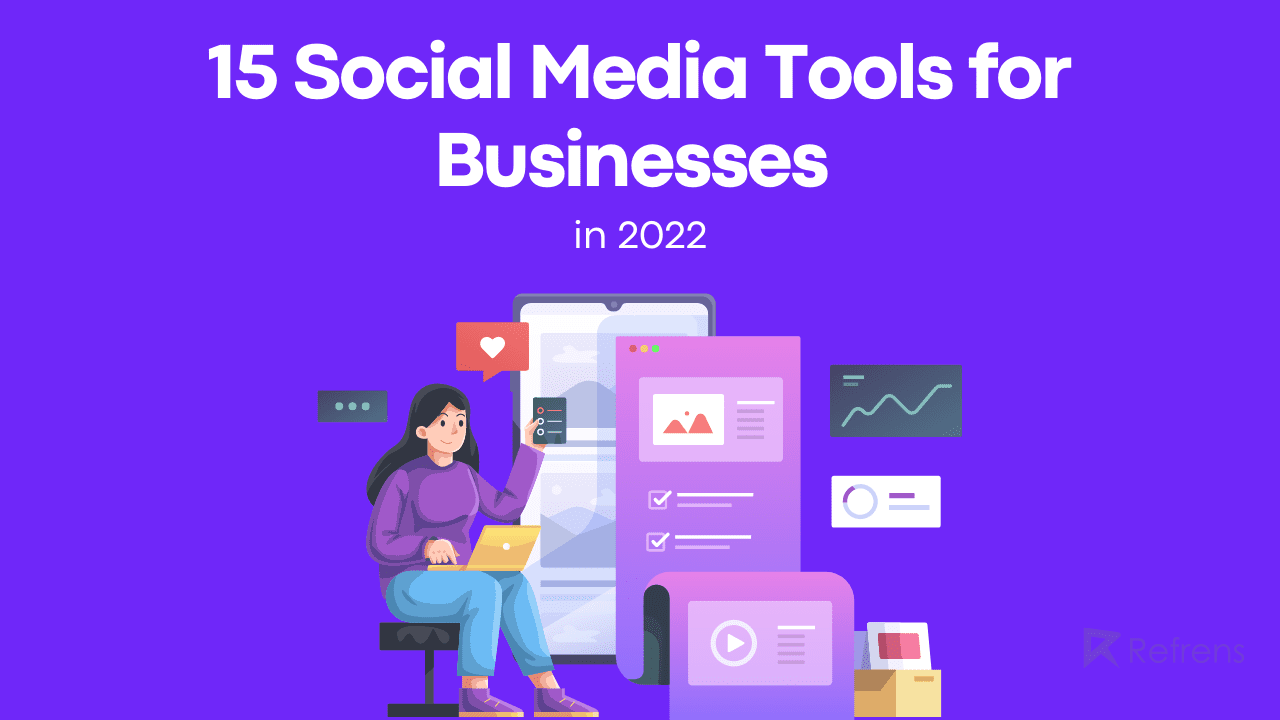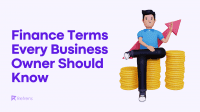A strong and determined personality, Aishwarya is a business graduate turned freelancer content writer. She has 3+ years of experience in the field of content creation and has worked with various brands and individuals. In love with writing since childhood, she sees tremendous growth for herself in this field.
Working as a full-time freelancer since 2018, she believes in the power of networking and LinkedIn to generate quality leads. She says that observing competition and learning from peers is one of the best ways for freelancers to polish their skills. As a freelancer, her pricing strategy is tailored for each project.
For her, the freedom and flexibility that freelancing allows is its biggest advantage. However, she acknowledges that people still overlook and undervalue freelancers for their work. On the path to upskill herself, her mission this year is to gain more knowledge and make her work worthwhile. We wish her success as plans she to expand her business and help others starting their freelancing journey.
Read Aishwarya’s journey of embracing freelancing:
1. Introduce yourself to us?
Hey, I’m Aishwarya Dabeer.
I am a graduate in Bachelor of Computer Applications (BCA) and have also completed my MBA in Entrepreneurship and Leadership. Previously, I have worked at the Indian Institute of Management Bangalore (IIM-B) as a research intern, and also at Radio Mirchi as an HR recruitment executive intern.
A professional freelance content writer and creator, I have been working in the freelancing industry for over 3 years now. I work with brands, startups, corporate companies, and individual business owners around the world and help them in strategizing and creating content that can take their business to the next level.
As a content consultant, I also help and support a lot of fellow freelancers in understanding the industry better in such a way that they can upskill themselves and make a mark of their own.
2. Why did you choose the field of content writing? How did you get introduced to this field? What fascinates you the most about your career choice?
I was around 7 years old when I started writing. I would write about anything and everything. Stories, poetry, drama, screenplay, and a lot more. Any competition that came up in school/college, I would always be a part of it and would end up winning the first prize.
In the process of growing up, I had put aside writing for a while to focus on my studies and sports a little more and it slowly became distant.
Once I started my MBA, I parallelly started my internship at IIM-B as well. That is when I also decided to start freelancing on the side and I managed to rekindle my love for writing.
What fascinates me the most about this profession is that I get to learn so much every day via my projects that require me to research and understand so many different things. This helps me grow tremendously.
3. Why did you choose to freelance? When did you begin to freelance? Were you planning it, or how did it happen?
I started my journey of freelancing as a part-time gig along with my MBA studies and my internship. I took it up to explore the industry and the opportunities.
When it was almost time for my internship to come to an end, I had to make a decision whether to apply for a 9-5 job or to convert my part-time freelance gig into a full-time profession.
Having already gotten a taste of what freelancing would be like and the different experiences I had already gone through, I decided to continue as a full-time professional freelance content writer.
Thus, my freelancing journey began in January 2018 and I haven’t looked back since.
4. How did you get your first client? What was your first project?
During the initial few months of my career, I was not aware of the power and reach of LinkedIn. So I had created my work profile on a lot of these freelancing platforms online to try and get some projects. It was quite difficult because of the fierce competition all around, not just in India, but from around the globe.
I bagged my first client from one such platform where I was asked to write a technical blog for a startup. However, later on, I ended up discovering LinkedIn and how much potential it had, so I shifted to it completely and stopped using other freelancing platforms.
5. Talk to us about, how to build and use your network effectively as a freelancer?
Your network is one of the greatest tools to have in your arsenal. The power it withholds is beyond measures. That is why it is very important to utilize it in the right manner.
If you are using platforms like LinkedIn, then start with reading the posts written by others. Try to engage with their posts in the comments section with meaningful replies which is relevant to what they have written. Start sending connection requests to people who are in a similar domain as yours, and also to people who you think might be potential clients and can be considered as good prospects.
You also need to start showcasing your skills as well so that people can become aware of who you are and what you are capable of. That is how you start getting noticed and it gives you a kick start into making your own brand and mark in the industry.
6. What do you do to polish your skills as a freelancer?
One of the most important ways to polish your skills (which is also my favorite method), is to observe other creators who are in your industry.
Observe their skills, see what content they put out, try to make notes of the different styles which people use while creating content, try and understand the various tones and techniques which are being used.
Other than that, books are a great way to gain knowledge, and of course, we have access to so much free content on the internet now, so that is one of the biggest sources to get information.
But obviously, there is one fundamental method which is followed universally – practice!
7. How do you price your services as a freelancer? Any essential points that a new freelancer should know of?
There are a lot of factors involved while determining the pricing for a project.
The type of project, the scope of work, the amount of research involved, the length of the project, the amount of time which I need to invest into the project, the experience I hold in the industry, and a lot more.
Since the requirements vary quite a lot for each and every project, the price is always customized and tailor-made accordingly. There are mainly 3 types of pricing methods that are followed – per word, per hour, or per project.
Every freelancer has their own preference with regards to the pricing model. The best way to go about this is to experiment with it and see what works best for you.
8. What is the one major pro and/or con of freelancing, according to you?
The biggest advantage of freelancing is the freedom and independence to work on your own terms from anywhere in the world at any given point in time. You get to explore so many different kinds of opportunities and go beyond so many boundaries while having an infinite earning potential.
One of the major cons of freelancing is the lack of knowledge in the world about this industry. Many people still do not take it seriously and assume it to be just a hobby. They do not understand the number of things involved in the backend such as marketing your services, approaching clients, pitching to prospects, negotiating on the terms and conditions, proposing a quotation and fixing it, closing a deal, contracts, doing the work, follow-up on clients, invoices, and so much more.
It is sad to see that such things are still overlooked and undervalued, but I am glad that things are slowly picking up after the pandemic, and freelancing is being more and more recognized.
9. Have you turned down a potential client? If yes, why?
Yes, I have. I strongly believe that it is not just the clients who scout and choose for freelancers but it works vice versa as well.
It is very important to qualify your clients at the beginning itself, and it is completely okay to do so, because if you think that a particular client is not the type of prospect you want to work with, then it would be wrong to forcefully accept the project and go ahead with it because there may be some clashes later on which could lead to problems for both the parties.
10. What’s your best piece of work to date? Why do you think that’s your favorite piece?
One of my most favorite things to work on at any given point in time is web copies. It gives me so much thrill to work on them.
Now, you may be thinking- what is so great about web content?
Let me tell you, there is so much more to it than it looks.
The reason I love it is because every web copy is different. It is customized according to what the brand is trying to portray. I have worked with so many brands that are of very unique domains. Due to the unique nature, I get an opportunity to research and explore more about so many new topics that I did not know of until now.
It helps me to gain more knowledge and experience with every project I complete. Although I do not want to specify just one particular piece that I have worked on, I would like to say that my favorites so far have all been the ones that are related to website content.
11. What mission and vision do you have? How do you want history to look at you?
My plan for this year is to upskill myself in terms of knowledge and skills. I also plan to scale and expand my business by launching a few digital products, workshops, courses, consultations, exclusive premium programs, etc.
I want to be known for my work, and the value and service I am providing to my audience. The goals is to ensure that my work is worthwhile and will help a lot of people in their careers.
12. What would do you differently if you had to begin your career again? What would you focus on once you restart?
If I had the chance to restart, the first thing I would focus on would be gaining more solid information about the industry and how it works. I would try and reach out to other industry experts and observe what they have been doing because I firmly believe that it is not compulsory, but it is very important to have a mentor in the initial stages of one’s freelancing industry.
Unfortunately, I did know any such people back when I started and had to find my own path. Hence, I have started mentoring newbies in the industry to help guide them so that they do not have to go through the same hurdles.
Aishwarya can be reached out on Refrens, LinkedIn, and Instagram.
If you are thinking of shifting to full-time freelancing after reading Aishwarya’s story, read our blog on Financial management for Freelancers to ace your financial planning using effective techniques.
